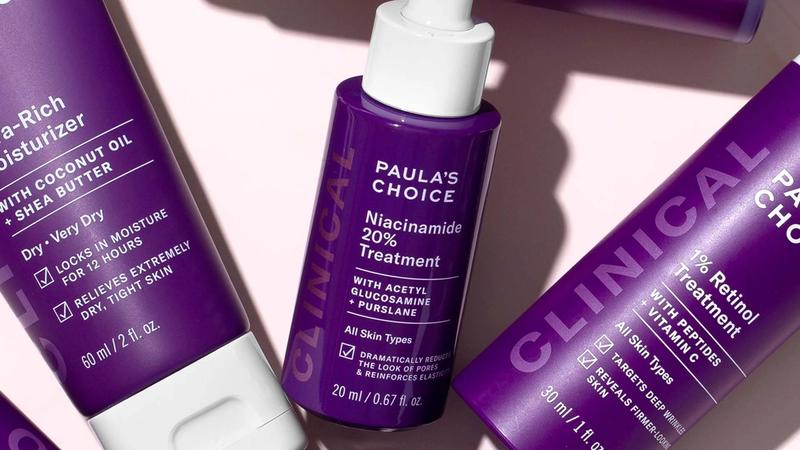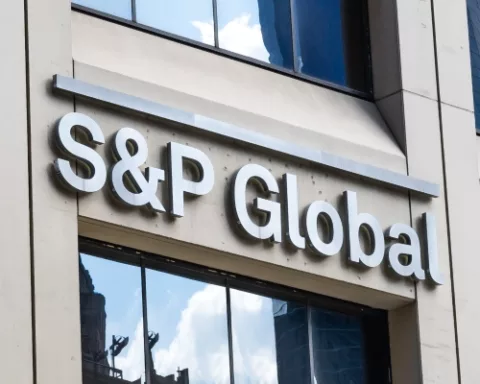Unilever Prestige is one of the fastest-growing parts of our business. But its premium beauty brands aren’t just about effective ingredients and indulgent experiences. As Executive Vice President Vasiliki Petrou explains: “If the brand doesn’t have a purpose, then it doesn’t belong here.”
Think of Unilever’s beauty brands and perhaps the first that spring to mind are household names like Dove, Vaseline, Pond’s, Lux and Sunsilk. But in the past few years our beauty business has evolved – and a new stable of luxury brands is driving rapid growth.
Unilever Prestige was launched in 2014, when its Executive Vice President and Group CEO Vasiliki Petrou was tasked with bringing a world-class portfolio of premium beauty brands into the company.
Seven years and nine brands later, Unilever Prestige reported €700 million in turnover in 2020 and strong double-digit growth in our most recent results for 2021. Our ambition now is to build a business worth at least €3 billion in the next few years through digital commerce, innovation, acquisitions and expansion.
While every Prestige brand has a distinct identity, one thing they all have in common is a clear, meaningful purpose. From REN’s zero-waste packaging to Hourglass’s commitment to cruelty-free, every brand is taking a stand on a relevant, authentic issue – and making a difference.
We caught up with Vasiliki to find out more about Unilever Prestige’s story so far…

Vasiliki, which brands comprise Unilever Prestige?
Since our launch in 2014, we have acquired nine carefully chosen brands. Within our first year we acquired REN, Dermalogica, Kate Somerville and Murad. In 2017, Living Proof and Hourglass joined the business. Two years later we added Garancia and Tatcha, and in 2021 we were delighted to bring Paula’s Choice on board.
How would you categorise these brands?
Our brands fit into three key areas. In Clinical Derma Cosmetics we have Dermalogica, the world’s No.1 professional skincare brand, available in more than 20,000 salons worldwide. Murad is a doctor-led clinical and wellness brand, with the No.1 brightening and retinol products in the US. And Kate Somerville is loved by A-listers and beauty gurus, with a must-visit clinic in Los Angeles.
Our Clean and Clinical segment includes Garancia, the fastest-growing pharmacy brand in France. We also have REN, which is clean to skin and clean to the planet. It recently launched the world’s first infinitely recyclable aluminium sachet. And our most recent acquisition, Paula’s Choice, is a direct-to-consumer powerhouse and one of the most successful brands in US beauty retailer Sephora.
Our third category is called High Performance. This includes premium, cruelty-free beauty brand Hourglass, which has the fastest-selling mascara in British beauty retailer Space NK. We have Living Proof premium haircare, which was created in partnership with scientists at MIT and is the No.2 prestige haircare brand in the US. Then we also have Tatcha, a luxury skincare brand rooted in Japanese rituals. It’s a digital and social commerce pioneer and Sephora’s second bestselling line.

What makes these brands different from others in Unilever’s Beauty & Personal Care business?
I refer to our Prestige brands as a string of pearls. A beautiful set of sophisticated businesses, threaded together yet shining independently. Many of the founders who created them remain very involved in how the brands are run.
Just ten markets around the world make up 70% of our sales in Prestige. So with them our priority isn’t to reach the greatest number of consumers. Instead, it’s vital to reach the right markets in the right way. While our mass-market brands benefit from being widely available, in Prestige a certain level of scarcity drives desirability.
Social media and e-commerce are also huge drivers for our Prestige brands, and they’re outpacing the market with more than 50% of our turnover coming from online sales. Of course, online sales are accelerating for all types of products – but with premium beauty brands, direct-to-consumer sales have been a priority for quite some time.
So how do Prestige brands fit in to Unilever’s wider business?
Every brand at Unilever has to have purpose. It’s our overarching aim to make sustainable living commonplace. That’s the anchor between our Prestige brands and Unilever’s wider portfolio.
Unilever’s Beauty & Personal Care division introduced the Positive Beauty vision and strategy earlier this year, committing to embrace a new era of beauty that’s inclusive, equitable and regenerative. One that’s better for people and for the planet.
In Unilever Prestige we believe in the same principles. If a brand doesn’t have purpose, then it doesn’t belong here. We are building a business of principled and authentic brands which consumers trust and believe in. Consumers want to see the brands they love standing up for something bigger than beauty. Every single one of our brands does just that.

Unilever Prestige has seen incredible growth since its launch. What are your big bets for the future?
Digitisation is one. We know around 70% of consumers worldwide use social platforms to search and shop for products and the global social commerce market is expected to reach more than $3 billion by 2028. Our brands have been quick to move into this area. Dermalogica is enjoying success on TikTok and has introduced a virtual reality store. Living Proof has a number of long-term influencer partnerships. And we’ve stepped into gaming too, with Tatcha introducing its own island on Animal Crossing to mark the launch of a new cleanser.
Innovation is another growth driver for us, and here we benefit enormously from leveraging the best of Unilever’s R&D capabilities. One of my favourite launches from the past year is Hourglass Red 0. It’s a true red lipstick made with a new patent-pending vegan alternative to carmine, the industry’s standard red pigmentation which is sourced from crushed insects. It took our scientists three years to develop but we’re planning to make the process open-source so others can apply the same technology. It’s a perfect fit with Hourglass’s ongoing commitment to animal welfare.
Our third big bet comes back to purpose. We know consumers expect more from brands than ever before and that consumer trust builds brand growth. So as our brands grow, we’re committed to growing their positive impact too.
Dermalogica, for example, is enabling women to achieve financial independence through training and empowering them with new professional skills. REN is continuing its zero-waste mission and this year launched the We Are Allies campaign, joining with competitor brands to pledge to reduce packaging waste. Kate Somerville’s mission is inspired by Kate’s own experiences and a desire to create positive change for generations to come. The brand is supporting young people who are ageing out of the foster care system, providing them with mentorship and training.
So what’s your big ambition for Unilever Prestige?
This year we have an annualised turnover of around €1 billion, so we’re close to a significant milestone. And we have big plans. My goal is to grow our Prestige business to at least €3 billion in the years ahead and our big bets – digitisation, innovation and purpose – will be crucial to achieving this.
Unilever Prestige is full of passionate, talented people and I’m honoured to be working alongside many of the founders who created our incredible brands. Together we can continue proving that purpose really is good for business.
“We know consumers expect more from brands than ever before and that consumer trust builds brand growth. So as our brands grow, we’re committed to growing their positive impact too.”






